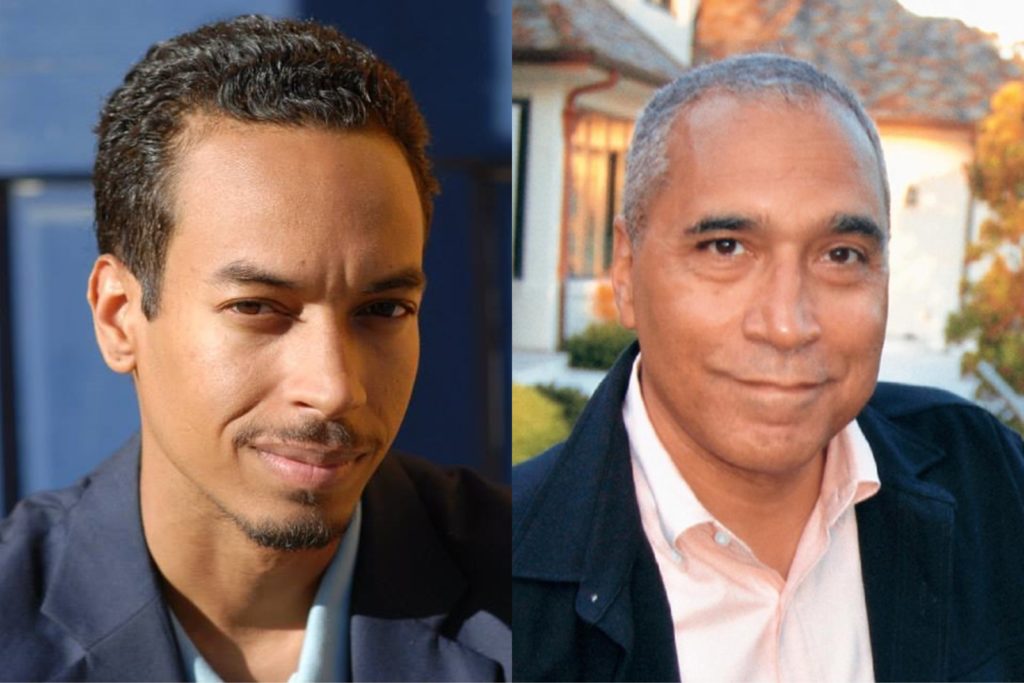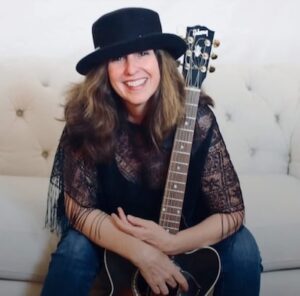Shelby Steele has been one of America’s most important Black conservative voices for more than a generation. His recent documentary film “What Killed Michael Brown?” critiques the mainstream narrative surrounding the death of Brown, a tragedy which spark protests for social justice across America. But does Steele see any legitimacy in the new antiracist movement? And what does it mean to be Black in America? John Wood, Jr. puts forward the questions in this deep diving conversation on politics, culture and race in America.
Twitter: @JohnRWoodJr @braverangels
Facebook: @braverangelsInstagram: @braverangels





8 thoughts on “Antiracism, Blackness and What Killed Michael Brown | Shelby Steele with John Wood, Jr.”
Thanks, John, for this podcast. I’m making a comment here because I doubt my comment would show up on the podcast page because I don’t have a FB account anymore.
I’ve avoided Shelby Steel because I’ve felt as if he was too hard on the black community without acknowledging the white community’s continued multi-layered response to the black community that has “kept them in their place”. There are a few points that Mr. Steele neglected to address. I hope you will invite him back.
Here is what I acknowledge he gets right. Liberalism has been disastrous for black America when it came to the projects and welfare. If we had employed in the 60s, 70s, 80s and 90s the protections and the type of help we provided the black community during the first few years of Reconstruction, 100 years earlier, blacks could have “pulled themselves up by the bootstraps.” Within 10 years, the black community was participating in all aspects of American life and were gaining wealth and power everywhere. But once the US federal government gave up protecting their rights, they were stripped of land, wealth, freedoms, and their lives. Jim Crow became the law of the land and even after our civil rights legislations, the states had power to strip the black communities of these protections. I’d like to hear how he responds to this.
I will acknowledge that some people are afraid of freedom. The black community does not hold a corner on this market, however. Women can be afraid of freedom. Poor whites can be afraid of freedom. Those not educated, or poorly educated can be afraid of freedom. Anyone who is raised to be afraid of the outside world or see the world as out to get them tend to approach life this way. I know of several white adult children within my close family and friends circle who fit this category and they had the best possible upbringings and opportunities. I think it is unfair to classify this as a black problem. When he uses this phrase he seems to be indicating a type of personality, rather than a race of people. Those who happened to be black but also have a lot of outside influences that contributed to that fear of success or fear of freedom, may number higher due to circumstances.
The idea that the motivation behind the accusation of systemic racism is Power is perhaps used by some and of course needs to be acknowledged. But Mr. Steele is not acknowledging the full story if he believes the 1960s and 1970s civil rights movement was not around race but simply human. Freedom riders were the backbone of the civil rights movement and that was 100% about race and the lack of civil rights because a person was black. Whites participated but were not fighting for their own civil rights. MLK was just be magnanimous.
Steele also didn’t address policies like mandatory minimums that targeted blacks. If he doesn’t think this was a direct response to the civil rights movement he is choosing to keep himself blind. Just because he was able to make it professionally is a combination of hard work, for sure, but also a large degree of luck. He is in the minority. His criticism of Eric Holden also rings a bit hollow. I’m a woman and if a woman is raped brutally and there’s a pattern of sexual abuse in this country, there is nothing wrong with not only prosecting on the basis of the law but with the unique prospective of being a woman and understanding the limitations of a woman’s power over a man attacking her. The comparison is not exactly correct but has legitimacy.
Anyway, thanks again. I’m so glad you did this, and I loved your approach and questions of him.
I believe there is an amazing lack of understanding about human behavior presented by Shelby Steele. He is not aware of his “advantages” and is therefore free to “Judge” others. I imagine that he would advise a person with clinical depression to just
“feel better.” Our history does affect us, as does our biological responses to our environment. There are parts of his message that do resonate – in that “using” race merely to obtain power is a path to nowhere.
I listened to the conversation of John Wood and Shelby Steele and I came away with a sense of gladness and hopefulness for the future in America. As a white woman who did not experience any racial discrimination, I feel in my bones that Mr Steele is right: That the call ‘Systemic Racism’ is being used as a power tool by some; and that it is the ‘Freedom from Racism’ that scares people because with it comes personal responsibility.
It was not that long that women were being discriminated against. And we have come a long way pulling ourselves up by our boot straps! We don’t look back feeling ‘victimized’. We look forward with optimism.
Having read several books by Mr. Steele when I was in my twenties, I was hoping for a nuanced view, a philosophical arguments or a presentation of facts, to support his thesis. Instead, I got a revealed truth rant that was not particularly interesting. As a seventy year old retired IT professional, I accept the fact that my accomplishments and the distance I traveled were a result of my knowledge, skills and abilities. I have imparted this message to my children and I hope to impart it to my my grandchildren. However, viewing personal responsibility as a virtue and recognizing the existence of racism is not mutually exclusive. I can walk and chew gum at the same time. So the problem I have with Mr. Steele‘s presentation is the either or dynamic. The notion that it is one way or the other. And I am to old to listen to ranting with no basis in fact; revealed truth has never worked for me.
Fantastic conversation with Mr. Steele! I really learned a lot. I really appreciated all of the questions asked and the conversation that occured. Keep these types of thoughtful discussions coming!
Thanks!
Angela Francois
Dr. Steele is a facinating man. His belief that white guilt equals black power provides a plausible explanation for our numerous failed government programs and policies (e.g., affirmative action). His message of taking responsibility for your own life applies to us all.
How can we really know what will advance black folks? Steele tells the story of self-help; others tell the story of victimhood and reparation. Which of these stories, if believed, would achieve its goal?
His comments about the difference between culture and race, are important. They resonated with what I’ve been reading in the recent book by Joseph Henrich (The WIERDest People in the World). Culture always evolves in ways we don’t plan and can’t predict and different cultures have different advantages and disadvantages. I was glad the conversation turned toward class at the end, but I thought that was Mr. Steele’s least satisfying answer. He didn’t really get us out of MLK’s bootstrap dilemma. For a better answer to that, I would look to someone like Adoph Reed, or his son, Toure, or Barbara Fields. Let’s get them on the podcast. I am finding increasingly that there is an interesting convergence of views between conservatives like Steele and Glenn Loury and Marxian leftists like the Reeds and Fields.